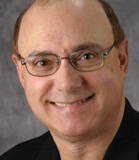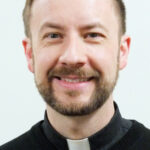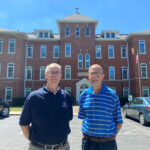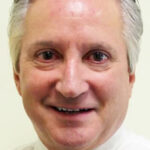By Fr. Joe DeFrancisco, S.T.D.
As Americans, we just observed our paramount celebration of freedom: the Fourth of July. On that day, we remembered joyfully and painfully the battles fought to ensure political, economic, social and religious freedoms, the fundamental basis of enjoying equal and just rights — human and divine. While the cost to win our human freedoms has been and continues to be very high, the responsibility of exercising those freedoms demands an even greater discipline of ethics and virtue.

In spite of the negative and destructive ways we have used our freedoms, Jesus assures his followers in John 3:16, “the Father has not sent me to condemn the world but to save those who believe in the Son, that they may have everlasting life.”
The daily challenge of our life in the Spirit reminds us of the fruits and graces we have received in and through Jesus’ redemptive love and death on the cross, and the promise Jesus left us in the spiritual transformation yet to be achieved through the “life-giving” Spirit.
Perhaps the pre-eminent grace the Apostles received at Pentecost was the true gift of spiritual freedom. They experienced a release from fear and terror. Freedom from fear then gave them the courage to publicly witness to the truth of Jesus and his saving power. In addition, the Spirit graced them with an inner conviction to freely give their own lives as testimony to their love for Christ and his church.
St. Paul critically reflects on our two sources of human freedom: the world and the Spirit. In his letter to the Galatians, sometimes referred to as the “Gospel of Freedom,” he writes: “the letter kills while the spirit gives life.” Scholars caution us not to read this literally. In essence, Paul is warning us of the limits of human law, such as the innumerable laws guaranteeing our freedoms.
While we Americans are convinced that we are the “freest” nation on earth, the truth is that we have created demoralizing bondages such as debt, consumerism, addictions, etc., which tend to nullify the freedoms we have fought so hard to achieve.
Galatians 4 assured the early Christians that being born into the Kingdom of God through the death and resurrections of Jesus means we are no longer in bondage to any of the worldly forces that strive to control us. There is a higher spiritual freedom at work through the presence and empowerment of the Holy Spirit.
St. Ambrose, in his theological reflection on the nature and mission of the Holy Spirit, chose to meditate carefully on the writings of Paul. In an effort to help us discern the differences between our earthly freedoms and the only “truth” that can set us free, St. Ambrose reaffirms St. Paul’s conviction that the gift of the Spirit reveals to us interiorly the “hidden” truths of God that are received by those who strive for spiritual maturity (De Sanct. Spir.11). Through centuries of writings and revelations, great mothers and doctors of the church have defined this inner truth and freedom as a contemplative and mystical knowledge of God and the ways of God. Our ordinary and commonly shared spiritual journey is to slowly and patiently pray for the desire and will to be open to these graces and allow the Holy Spirit to teach and guide us.
Traditional spiritual theology has taught us to look upon this journey as a three-stage process of growth from the “purgative” stage, through the illuminative or enlightened stage, to the final stage of affective, even passionate love for God.
Herein lay the initial challenge of the beginning stage of the spiritual life, a prayerful effort to gain both external and internal freedoms. Spiritual freedom is not a Fourth of July remembrance. Spiritual freedom is a graced life built upon our willingness to surrender and let go. Perhaps this is why the early Christian writers named this “purgative.” It means that on every level we honestly and humbly name and confront our “un-freedoms.”
Through prayer, meditation, sacramental life and spiritual direction we embark on a courageous inner journey to find the truth of our life and ask God’s divine assistance in helping us to release and let go of all those things that are hindering a healthy, wholesome and holy life. These un-freedoms are material, emotional, psychological and spiritual.
No matter where we begin, there is no better way to end this reflection than a sobering reminder from one of our great mystics, St. John of the Cross: “The soul that is attached to anything however much good there may be in it will not arrive at the liberty of divine union. For whether it be a strong wire rope or a slender and delicate thread that holds the bird, it matters not, if it really holds it fast; for until the cord be broken the bird cannot fly.” (D.N.S.,153).
(Fr. Joseph DeFrancisco, S.T.D., is professor of theology and pastoral studies at St. Ambrose University in Davenport.)











